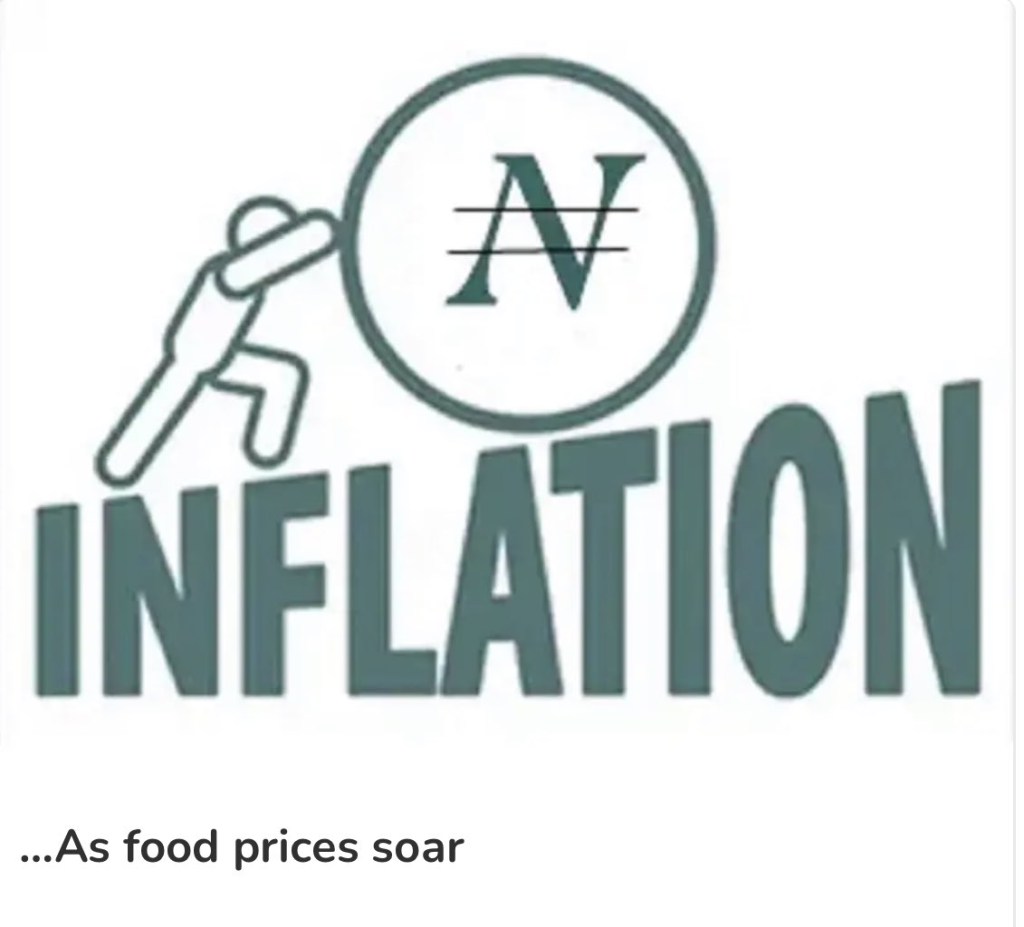
The economic hardship and suffering are getting worse in Nigeria as inflation rate rises to 25.8 percent in third quarter.
According to the consumer price index (CPI) used to measures the rate of change in prices of goods and services, inflation rose to 25.80 percent in August 2023 — up from 24.08 percent in July.. The National Bureau of Statistics (NBS) that released the CPI report stated that food inflation, which accounts for the bulk of Nigeria’s inflation basket, rose to 29.34% in August from 26.98% in July.
So many things can be attributed to the steadily rise of food price and inflation rate including poor industrial productivity and over burden debt of the government. A chunk of revenue generated by Nigerian government was utilized in the servicing of the huge debt. The removal of fuel subsidy have generally raises the price of goods and services. “President Bola Tinubu in May removed a popular but costly decades-old petrol subsidy and ended exchange controls, leading to a spike in prices from food to transport fares and angering unions who have threatened strikes.”
“Rising prices across the board for food and edible oils and eggs are responsible for increasing food inflation, however, security in food-producing areas, rising cost of energy for transportation, and inadequacies in public infrastructure also contributed to rising food and core inflation, the Central Bank of Nigeria said in a statement. The price of diesel has more than doubled, at 850 Nigerian naira a liter ($1.12) compared with NGN400 a liter a year ago. Petrol is around three times more expensive since the end of May when the government removed a subsidy on petroleum products. Petrol is between NGN580 a liter to NGN630 a liter, up from NGN195 before the removal of the subsidy. The central bank’s decision to float the national currency against the U.S. dollar has also resulted in a depreciation of the naira, further pushing up prices of other goods as well.”

Leave a Reply